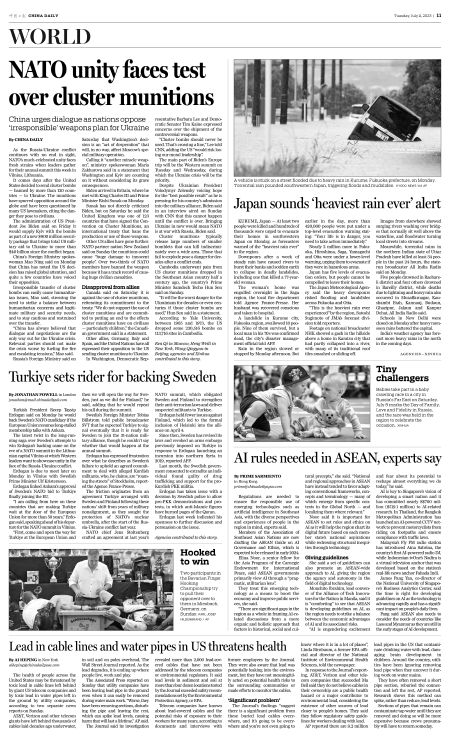Regulations are needed to ensure the responsible use of emerging technologies such as artificial intelligence in Southeast Asia, with the diverse perspectives and experiences of people in the region in mind, experts said.
Members of the Association of Southeast Asian Nations are now drafting the ASEAN Guide on AI Governance and Ethics, which is expected to be released in early 2024.
Elina Noor, a senior fellow for the Asia Program of the Carnegie Endowment for International Peace, said ASEAN governments primarily view AI through a "pragmatic, utilitarian lens".
They treat this emerging technology as a means to boost the economy and improve public services, she said.
"There are significant gaps in the region as a whole in framing AI-related discussions from a more organic and holistic approach that factors in historical, social and cultural precepts," she said. "National and regional approaches in ASEAN have instead tended to favor adapting conventional frameworks, concepts and terminology — many of which emerge from specific contexts in the Global North — and localizing them where relevant."
Noor said it is important for ASEAN to set rules and ethics on AI as it will help the region chart its digital future based on each member state's national aspirations while redressing structural inequities through technology.
Giving guidelines
She said a set of guidelines can also promote an ASEAN-wide approach to AI, giving the region the agency and autonomy in the field of digital technology.
Monchito Ibrahim, lead convener of the Alliance of Tech Innovators for the Nation in Manila, said it is "comforting" to see that ASEAN is developing guidelines on AI, as the region needs to strike a balance between the economic advantages of AI and its associated risks.
"AI is engendering excitement and fear about its potential to reshape almost everything we do today," he said.
AI is key to Singapore's vision of developing a smart nation and it has committed nearly S$700 million ($519.1 million) to AI-related research. In Thailand, the Bangkok Metropolitan Administration has launched an AI-powered CCTV network to prevent motorcyclists from riding on footpaths and ensure compliance with traffic laws.
Malaysia's Fly FM radio station has introduced Aina Sabrina, the country's first AI-powered radio DJ, while Indonesian tvOne's Nadira is a virtual television anchor that was developed based on the station's real-life news anchor Fahada Indi.
James Pang Yan, co-director of the National University of Singapore's Business Analytics Center, said the time is right for developing guidelines on AI as the technology is advancing rapidly and has a significant impact on people's daily lives.
Pang said ASEAN also needs to consider the needs of countries like Laos and Myanmar as they are still in the early stages of AI development.
prime@chinadailyapac.com

